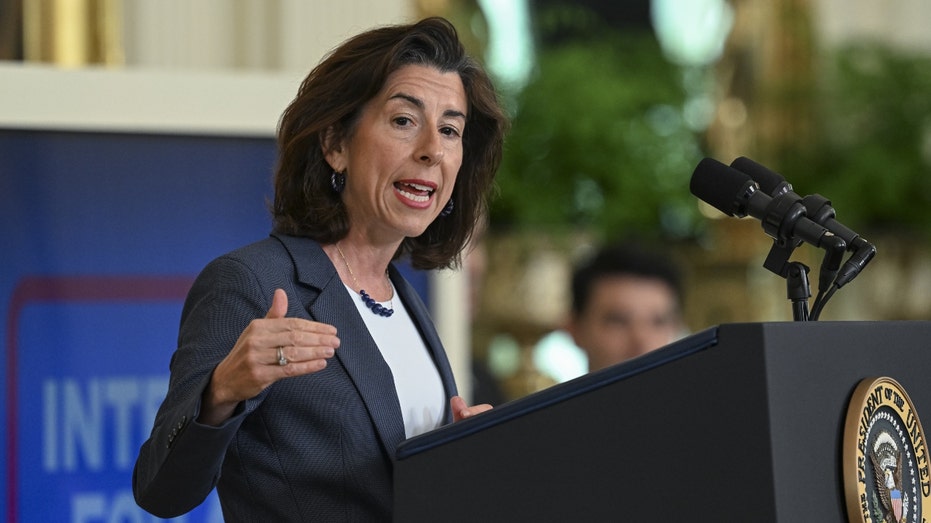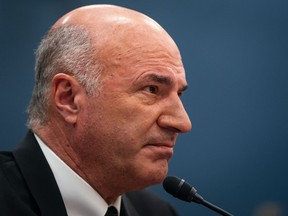World
White House proposes ban on Chinese tech in US cars

Fox News senior strategic analyst Gen. Jack Keane discusses the U.S. interception of a Russian and Chinese aircraft, a report that Ukraine is urging China to help end the war, and Frances rail networks hit by arson attacks.
The Biden-Harris administration on Monday announced a proposal that would ban the use of key Chinese software and hardware in connected vehicles on U.S. roadways over national security concerns.
The White House announced that the Commerce Department will propose a regulation prohibiting the sale or importation of connected vehicles that use certain technology and components made in countries of concern, in this case China and Russia. In effect, the rule would ban Chinese vehicles from the U.S. market in the years ahead, with software prohibitions taking effect in the 2027 model year and the hardware ban kicking in for the 2030 model year.
“China is flooding global markets with a wave of auto exports at a time when they are experiencing overcapacity. We have seen this playbook before in the China shock of the early 2000s that harmed our manufacturing communities,” Lael Brainard, director of the National Economic Council, said in planned remarks to the Detroit Economic Club.
“Americans should drive whatever car they choose – gas powered, hybrid, or electric,” Brainard said. “But, if they choose to drive an EV, we want it to be made in America, not in China. In order for companies to invest in innovative new designs and models here in America, they need to be assured that their investments won’t be undercut by unfairly underpriced cars from China.”
US BEATS OUT CHINA FOR MOST COMPANIES ON FORTUNE’S GLOBAL 500 LIST
Chinese automakers like BYD would be effectively blocked from the U.S. market under the rule. (Willy Kurniawan / Reuters Photos)
Though there are relatively few Chinese-made cars or trucks imported into the U.S., Commerce Secretary Gina Raimondo said the agency is acting “before suppliers, automakers and car components linked to China or Russia become commonplace and widespread… We’re not going to wait until our roads are filled with cars and the risk is extremely significant.”
Most newer cars and trucks are considered “connected” because of the onboard network hardware for internet access, which allows the sharing of data with devices inside and outside the vehicle.

Lael Brainard, director of the National Economic Council, outlined the rule at a speech before the Detroit Economic Club. (Andrew Harrer/Bloomberg via / Getty Images)
The Commerce Department said in a fact sheet that while connected vehicles “provide many benefits – from promoting vehicle safety to assisting drivers with navigation – but they also pose new and growing threats.”
“These technologies include computer systems that control vehicle movement and collect sensitive driver and passenger data as well as cameras and sensors that enable automated driving systems and record detailed information about American infrastructure,” the agency explained.
TRUMP SAYS CHINA WANTS ‘ANYBODY BUT ME’ IN THE WHITE HOUSE: ‘I WAS KICKING CHINA’S A–’

Commerce Secretary Gina Raimondo’s agency is formally proposing the new rule. (Celal Gunes/Anadolu Agency via / Getty Images)
“When foreign adversaries build software to make a vehicle that means it can be used for surveillance, can be remotely controlled, which threatens the privacy and safety of Americans on the road,” Raimondo said. “In an extreme situation, a foreign adversary could shut down or take control of all their vehicles operating in the United States all at the same time, causing crashes, blocking roads.”
Chinese Foreign Ministry spokesperson Lin Jian said China urges Washington “to respect market principles and provide Chinese companies with an open, fair, transparent, and non-discriminatory business environment. China will firmly safeguard its legitimate rights and interests.”
GET FOX BUSINESS ON THE GO BY CLICKING HERE
Reuters contributed to this report.







